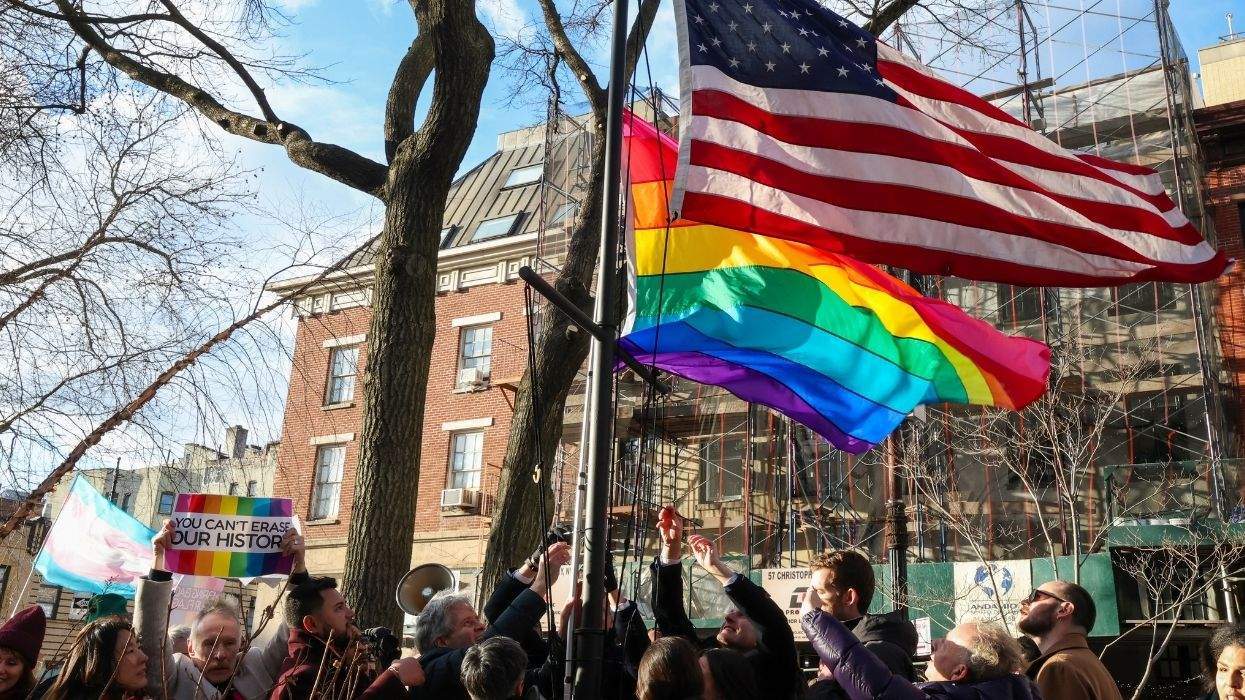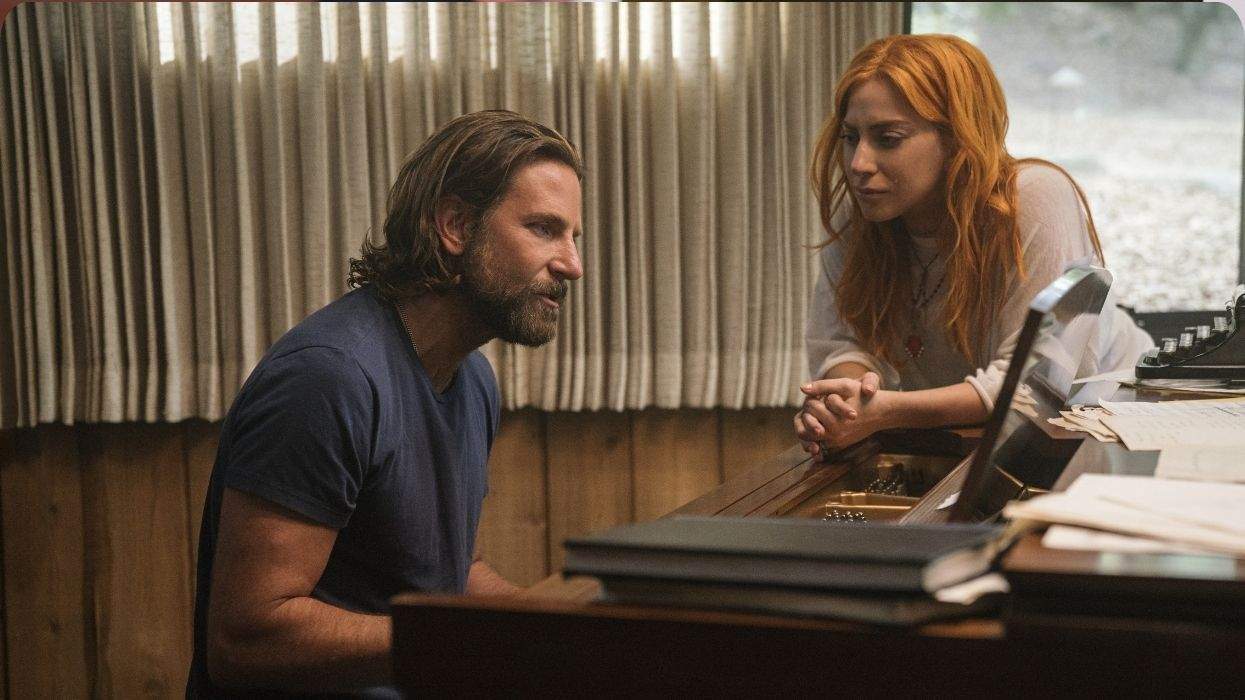Update: U.S. Cardinal Robert Prevost becomes new pope. Here's his LGBTQ+ record.
As Rome prepares for a new papal election following the death of Pope Francis, an air of both reverence and apprehension has settled over the Vatican. For LGBTQ+ Catholics and their allies, the conclave signals a pivotal moment, one that could either sustain the spirit of inclusion Pope Francis championed, curtail it, or send it backwards.
Keep up with the latest in LGBTQ+ news and politics. Sign up for The Advocate's email newsletter.
Michael O’Loughlin, executive director of Outreach, a resource ministry for LGBTQ+ Catholics, is in Rome during this time of transition.
“There’s still memorials to Pope Francis,” he told The Advocate, “but everyone is talking about the conclave and who will be elected next. For Catholics who really admired Pope Francis, there’s probably a little nervousness about who might follow him.”
The anxiety is not only palatable but understandable. While Pope Francis appointed roughly 80 percent of the cardinals eligible to vote in this conclave, a move that should, at least on paper, tilt the scales toward continuity, O’Loughlin notes that geography doesn't always dictate ideology.
“Even though he made the College of Cardinals more diverse by appointing men from places that didn’t traditionally have cardinals, they come from more conservative areas as well,” he explained. “So it doesn’t necessarily mean they’re on board with Francis’ outreach, especially to the LGBT community.”
Still, there is cautious hope. Many observers believe there is an appetite among the cardinals to elect someone who can preserve Francis’ pastoral tone without generating quite so many headlines. O’Loughlin describes the mood as open to a pope who will continue the Church’s emphasis on mercy and inclusion, but in a steadier, quieter form. “Someone who admired Pope Francis’s courtesy, but who maybe is a little less charismatic. Someone calmer and more steady,” he pointed out.
Among the names being floated, a few have emerged as contenders who might carry forward aspects of Francis' legacy, especially regarding LGBTQ+ inclusion. According to O’Loughlin, one of the more promising figures is Cardinal Matteo Zuppi of Italy, a close ally of Francis and a voice for a more inclusive Church. “Zuppi has written prefaces for books on LGBTQ+ Catholics and has been vocal about the need for welcome, even as he upholds traditional Church teachings on marriage,” explained O’Loughlin.
Another possibility O'Loughlin mentioned is Cardinal Luis Antonio Tagle of the Philippines, who was once considered a frontrunner. Tagle has similarly walked a tightrope, emphasizing pastoral care for LGBTQ+ Catholics while remaining doctrinally conservative. His momentum, however, appears to have waned in recent days, raising questions about how much sway Francis’s closest allies still hold within the conclave.
O’Loughlin said that perhaps the most widely mentioned candidate is Cardinal Pietro Parolin, the Vatican’s Secretary of State. “Parolin embodies the continuity without drama profile many in the Church hierarchy seem to desire,” O’Louglin noted. “Though close to Francis in governance, he is considered more traditional, especially on LGBTQ+ issues. His election would likely mark a return to a more cautious and reserved papal style, and one that extends the olive branch but doesn’t push the boundaries.”
On the more conservative end is Cardinal Péter Erdő of Hungary. O’Loughlin explained that he is a canon lawyer known for his careful, measured language. “He’s seen as a palatable choice for those favoring a more traditional Church, particularly on sexuality and gender, and would likely appeal to conservatives within the College of Cardinals,” O’Loughlin said.
While not known for inflammatory remarks, Erdő’s reluctance to endorse LGBTQ+ outreach suggests a cooling of the Francis-era momentum.
For many Catholics, though, the conclave isn’t just about theology or doctrine; it’s also about tone, style, and symbolism. Pope Francis redefined the papacy in profound ways. He declined the opulent Apostolic Palace in favor of a modest Vatican guesthouse. He rejected the gilded vestments often worn by popes, choosing instead to step onto the balcony in 2013 dressed simply.
Famously, he traveled in a Ford Focus. These choices were not just personal preferences. They were statements of humility.
Whether the next pope will follow suit remains to be seen. “That’s one of the big questions,” O’Loughlin said. “Will the new pope step onto the balcony without the traditional garments? If he does wear them, it might suggest a return to papal grandeur. Every detail in those early moments will be scrutinized and compared to Francis.”
And it’s not just about appearances. Francis’ legacy, his commitment to a more inclusive Church, his outreach to LGBTQ+ Catholics, his symbolic rejection of extravagance, has left a powerful imprint. “Whoever is elected will have to navigate that legacy,” O’Loughlin explained. “Even if they don’t embrace all his reforms, they’ll need to respond to the expectations he set.”
As cardinals prepare to cast their votes under Michelangelo’s ceiling in the Sistine Chapel, the world watches and waits. For LGBTQ+ Catholics especially, the next pope will send a message not just with his first homily, but with his first step onto the balcony. Will it be a message that will either echo Pope Francis’ call for mercy, or retreat from it?
















